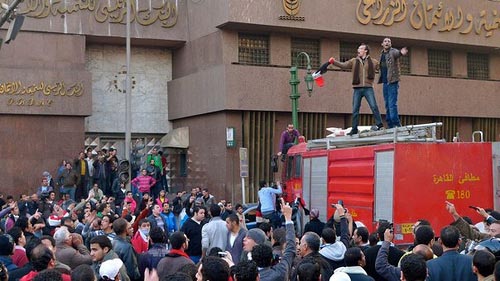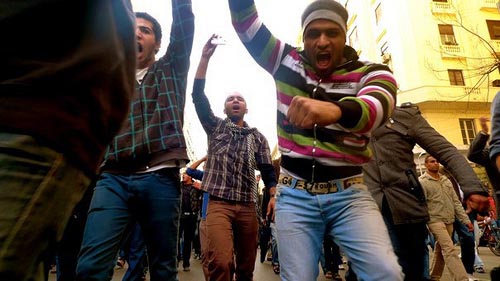In Cairo, A Popular UT-Supported Listserv Goes Dark As Protests Continue

From his desk in UT's Middle Eastern Studies program, associate professor Samer Ali sees the day-to-day of life in Egypt from 6,000 miles away.
Ali dreamed up and now moderates Cairo Scholars, the practical, life-navigating listserv for foreigners living in Cairo — a city of nearly 18 million.
Having grown to somewhere around 3,000 users since its launch in 2005, Cairo Scholars normally delivers up to 150 group messages per day. Ali scans the requests and tips that users share for everything from how to rent an apartment to how to find verboten pork products.
Then, on Friday — at the height of the protests rocking Egypt — the list went silent.
The Egyptian government blocked all the Internet access within its control, leaving the 85 percent of the country that was unable to use satellites or dial-up without Internet. Last night Noor Group, the last remaining provider, also went offline, leaving virtually no access at all.
"It's really quite eerie," Ali says.
Since then, Ali has been left to worry about the safety of students and other non-natives in the face of looting and robberies — which he believes are being perpetrated by opportunists, not protesters, and which he says the government may be willfully allowing to continue so that people crave order over democracy.
The information that has leaked to Ali so far has been nerve-wracking — multiple users have reported being robbed at knifepoint en route to the airport.
Ali passed on the U.S. State Department's "warden" message at 1 a.m. Monday, advising Americans that the U.S. government was arranging flights to safe havens in Europe. Since most users would not see the message, he asked that anyone who did pass on the word verbally.

It worked — one worried mom who scans the listserv, for instance, wrote back to say she'd relayed the news to her son in Cairo by telephone.
Last week, while the listserv was still accessible, Ali had also made the important advisory that non-Egyptians not join in protests, no matter how they felt about government or democracy.
"As a moderator," he says, "I gave my personal opinion that it was a revolution for the Egyptian people and that it was not a good idea for non-Egyptians to participate, because it would give leaders the opportunity to say that it wasn't domestic, it was outside influence, and that Americans or Europeans were stirring up trouble."
Now he mostly waits, with both anxiety and hope. He expects the Internet to be blocked for weeks, and he's concerned that people who didn't stock up on enough food or pre-paid phone cards will suffer now that stores are closed.
The professor, who was born to Egyptian parents and traveled to the country on a Fulbright scholarship, had been anticipating a democratic movement for several years now as he heard Egyptians talk about elections and political change.
"When the uprising happened in Tunisia, and [President Zine El Abidine] Ben Ali left, that was like a trigger," he says. "I think the prospects of a wave of change — hopefully of democracy — are high."
Meanwhile, as public calls for governmental accountability continue to sweep through Jordan and the Middle East, another Texas Ex is at the center of it all. Palestinian Authority prime minister Salam Fayyad, PhD '86, Distinguished Alumnus, has announced his government will set a date next week for elections postponed last year.
Photos courtesy of Al Jazeera English





